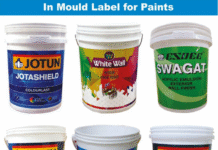In light of Bosch divesting its packaging business globally several years ago, and the business now branded as Syntegon, Packaging South Asia editor Naresh Khanna tried to understand if and what changes may have come to the company’s substantial Indian operations which include manufacturing in a purpose built modern factory in Verna in Goa. Syntegon India’s managing director Nilesh Vedak gives us some straight answers.
Packaging South Asia – What if any are the major changes in Syntegon in India in light of the company being divested by Bosch?
Nilesh Vedak – There have been no major changes. Verna continues to be an important Syntegon site, and the company keeps investing in its facilities to meet the increasing demand of domestic and international markets. With 150 well-qualified and experienced employees and an installed base of over 3,000 machines in India and overseas, Syntegon is one of the top players among the packaging machinery manufacturers.
PSA – What are the machines being manufactured in India at the Goa plant?
Nilesh Vedak – Syntegon’s facilities in India are certified according to the ISO 9001: 2015 norm and manufacture primary and secondary packaging machines for the food and non-food industry, including vertical baggers, horizontal wrappers, and various feeding solutions as well as a range of cartoners for automated packaging processes and process technology for confectionery products.
PSA – What are the major or minor or interesting sales that are taking place in the Indian and nearby markets for the Syntegon Indian team?
Nilesh Vedak – We do not disclose our current sales projects to ensure the privacy of our customers. However, Syntegon is involved in numerous customer projects in India, which we will reveal as soon as they are market ready.
PSA – We may be wrong but we sense or see a change in alignment of Syntegon in Europe
with pharma packaging machines, is that also reflected in India or are you still selling and
supporting pharma packaging machines in India?
Nilesh Vedak – Syntegon is still manufacturing and selling packaging equipment in India. As far as pharma machines are concerned, the focus is on the entire production and primary packaging process for liquid and solid pharmaceuticals, as well as on services along the entire machinery lifecycle. The food portfolio focuses on vertical baggers, horizontal wrappers, and various feeding solutions as well as a range of cartoners for automated packaging processes and process technology for confectionery products.
PSA – What if any role has Syntegon played in the Covid-19 vaccine delivery program in India and for exports?
Nilesh Vedak – Syntegon offers complete line solutions and is an important partner of pharmaceutical manufacturers worldwide. Our customers rely on our packaging, processing, filling, and inspection technology to produce safe vaccines. We support them with fast-track line configuration and a comprehensive service portfolio to retrofit or modernize their existing machines. Qualification and documentation further support pharmaceutical manufacturers in delivering safe vaccines.
PSA – Any new Indian-made machines for food and beverages?
Nilesh Vedak – Among other solutions, we recently showcased three new machines at Syntegon’s in- house customer show in India. These are –
– A high-speed vertical bagger specifically designed for the snacks market which is highly cost- sensitive and fragmented (Terra 25 HS). The bagger delivers optimal efficiency and supports manufacturers in remaining competitive. The compact, versatile and operator-friendly machine is equipped with belt draw-off technology with a servo cross sealing system to ensure accurate single and chain bags with quality seals for a robust design.

– A vertical bagger (SVZ 1803) designed for packaging abrasive and corrosive products such as salt. Corrosive substances need to be handled very carefully during processing and packaging. Salt particles, for example, tend to stick to the forming tube and the packaging material causing slippage of film in belt-driven machines. That is why the machine is equipped with jaw draw-off technology with servo cross sealing system to ensure accurate bags with quality seals for a robust design.
– A cartoner designed for 24/7 production and optimal OEE (Sigpack TTME). Thanks to its
patented tool-less changeover concept, the machine has a quick vertical restart. The cartoner also offers optimal flexibility as it is designed to handle diverse packaging styles and formats and materials and can be scaled up to 30 cartons or 800 products per minute to fit manufacturers specific production capacities
PSA – What are the packaging filling and sealing trends in India, particularly for food,
confectionary, baking, beverages, and for pharma?
Nilesh Vedak – Sustainability continues to be a major trend in the food industry worldwide, as a growing number of consumers demand eco-friendly alternatives to their everyday products. It is, therefore, becoming increasingly important for food manufacturers to be able to process conventional as well as alternative packaging materials such as paper or fully recyclable mono-materials. In addition, the pandemic has fueled the trend towards automation, especially when secondary packaging is concerned.
By increasing the level of automation in their packaging lines, food manufacturers are able to achieve more flexibility and efficiency as well as meet highest hygiene standards. In India specifically we see a rise in demand for sophisticated bag styles such as the doy style
or full corner seal styles. In pharma applications, the focus is on speed and flexibility in the choice of pack styles and fast product changeovers. Fast time-to-market is especially important for new drug developments. Syntegon offers equipment and services for all these needs.












